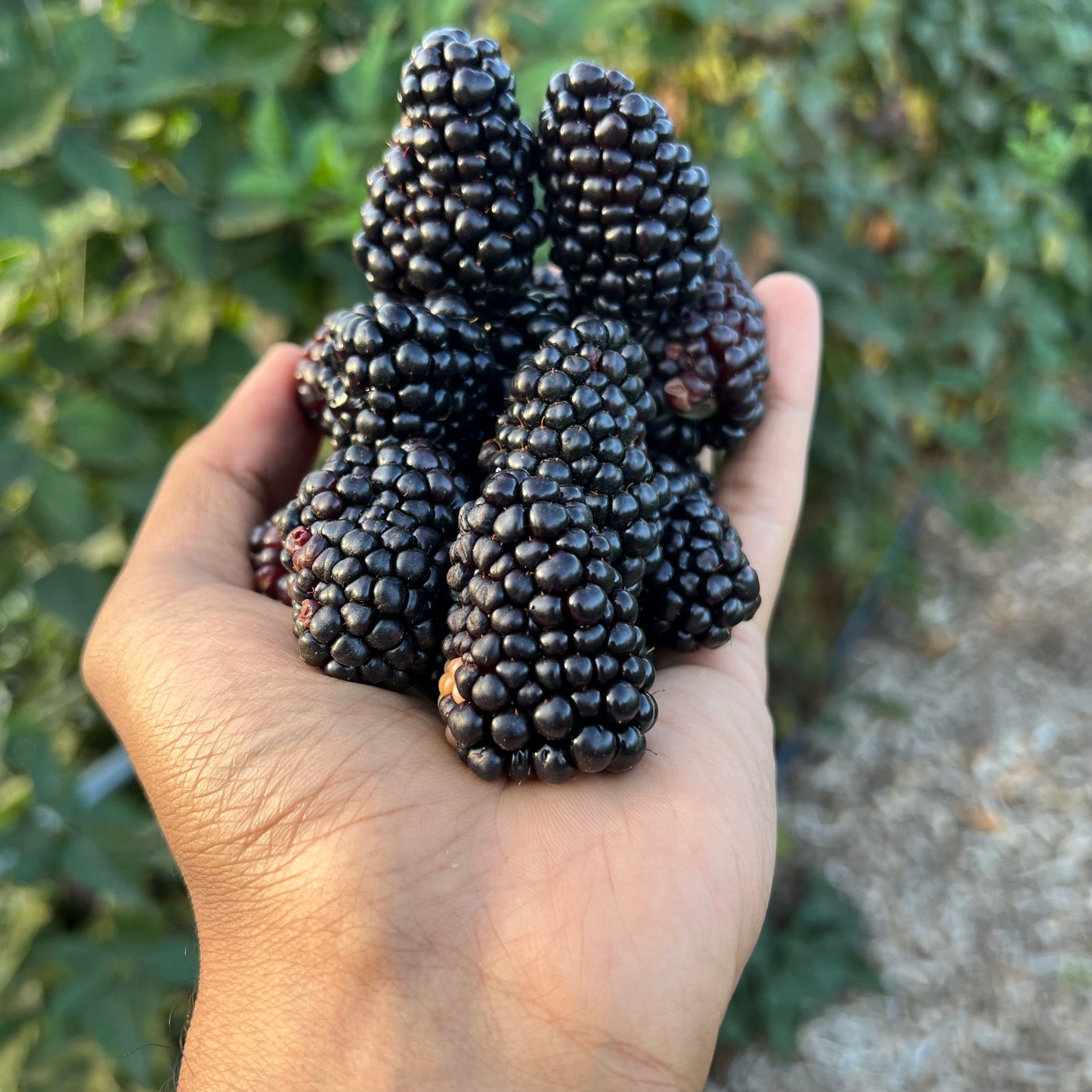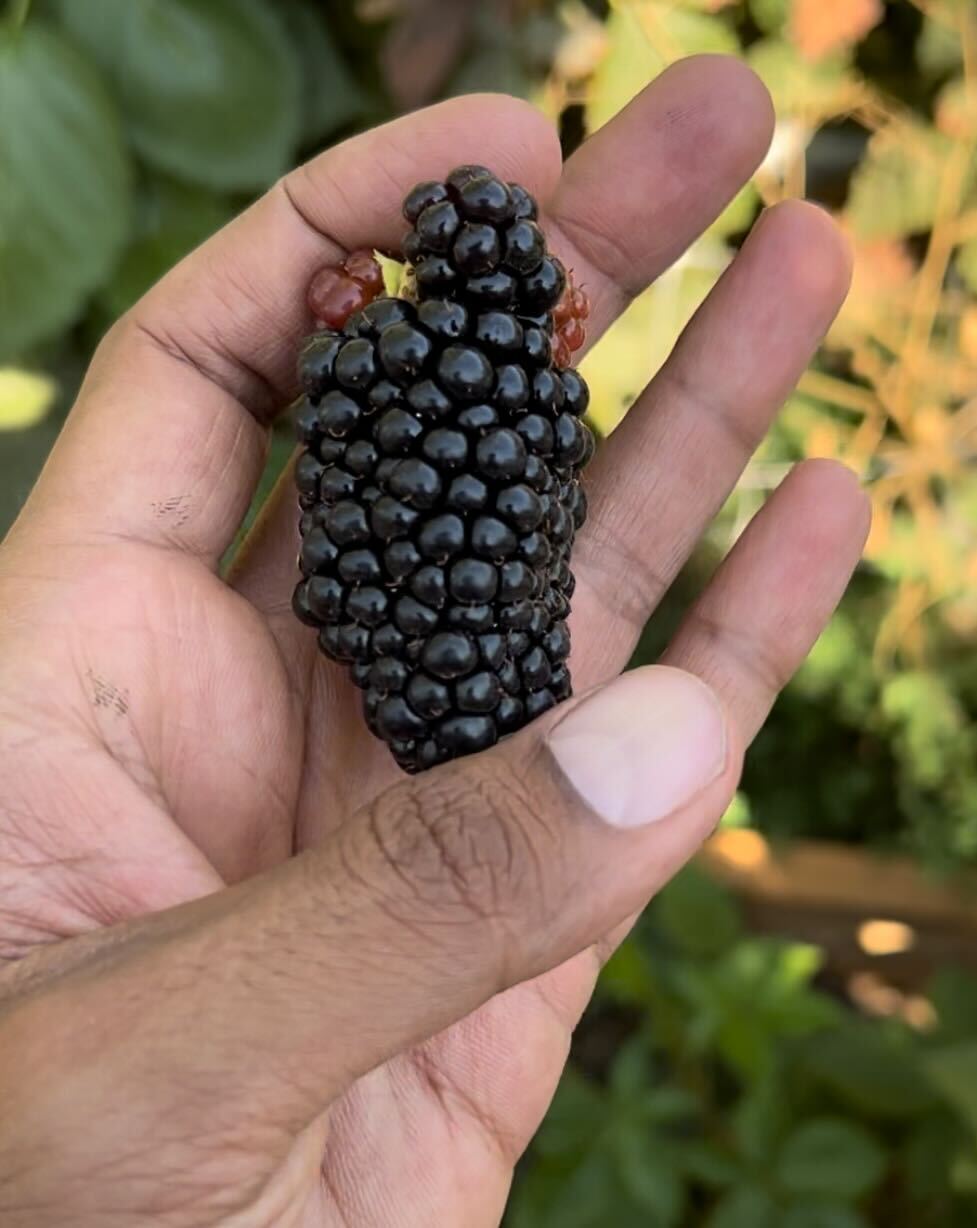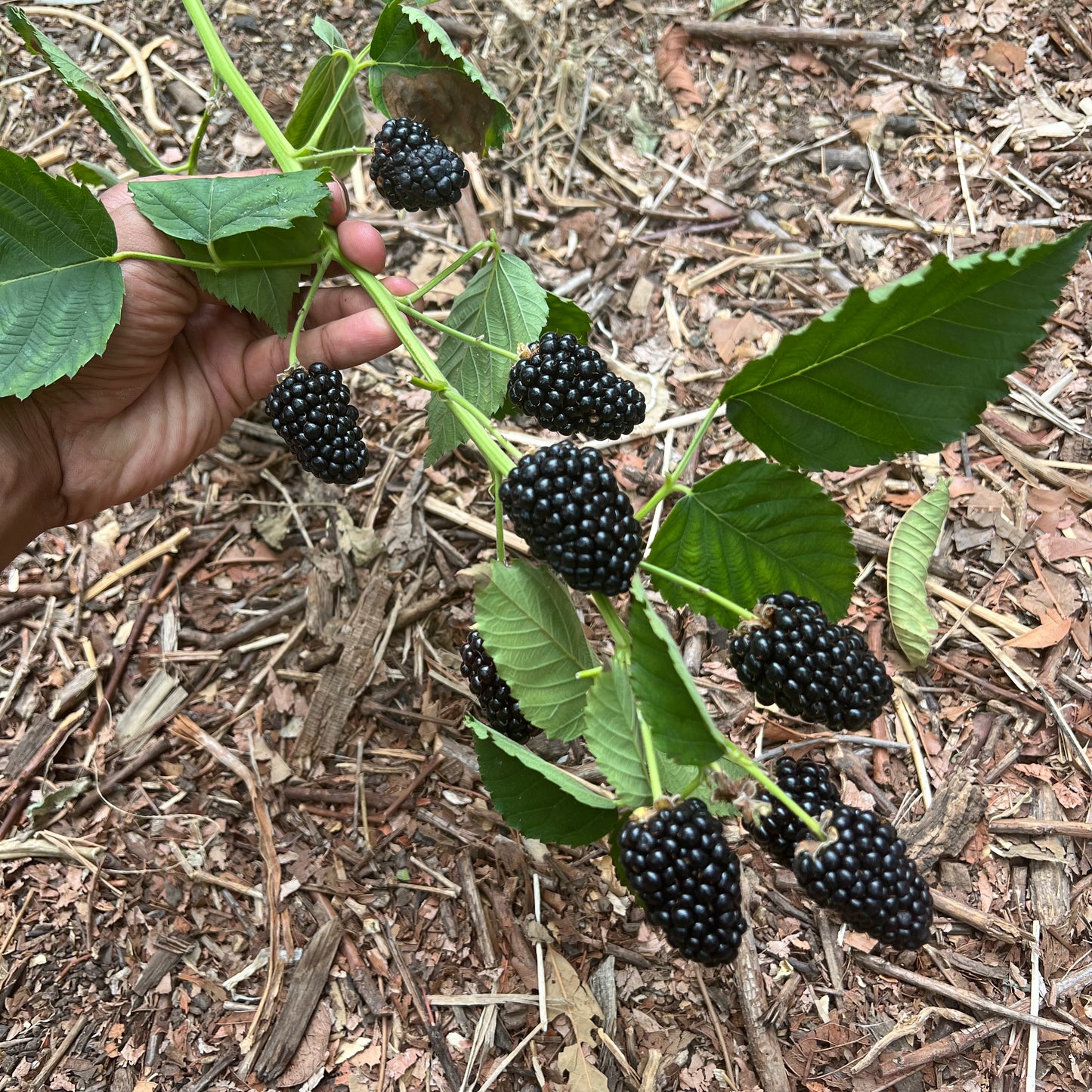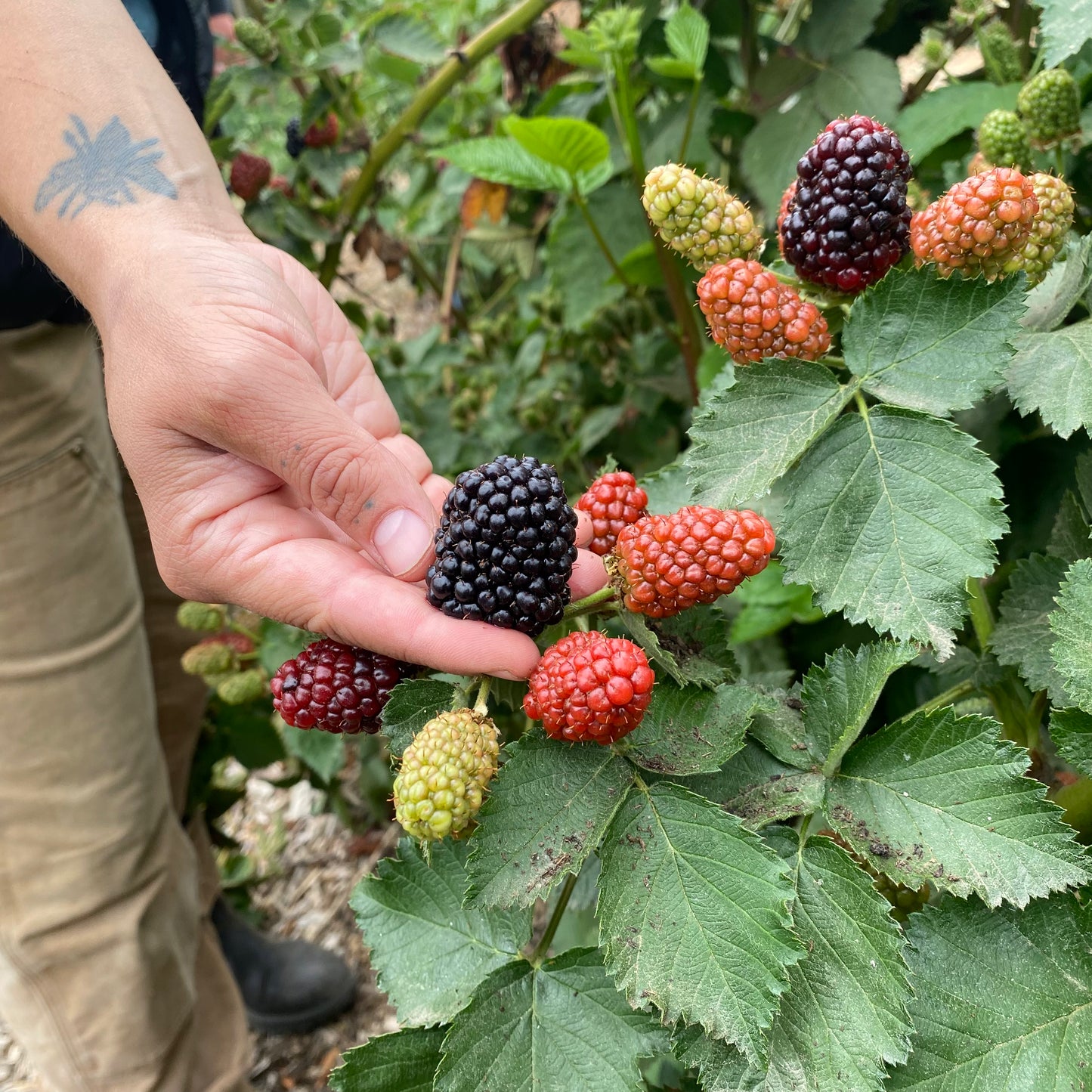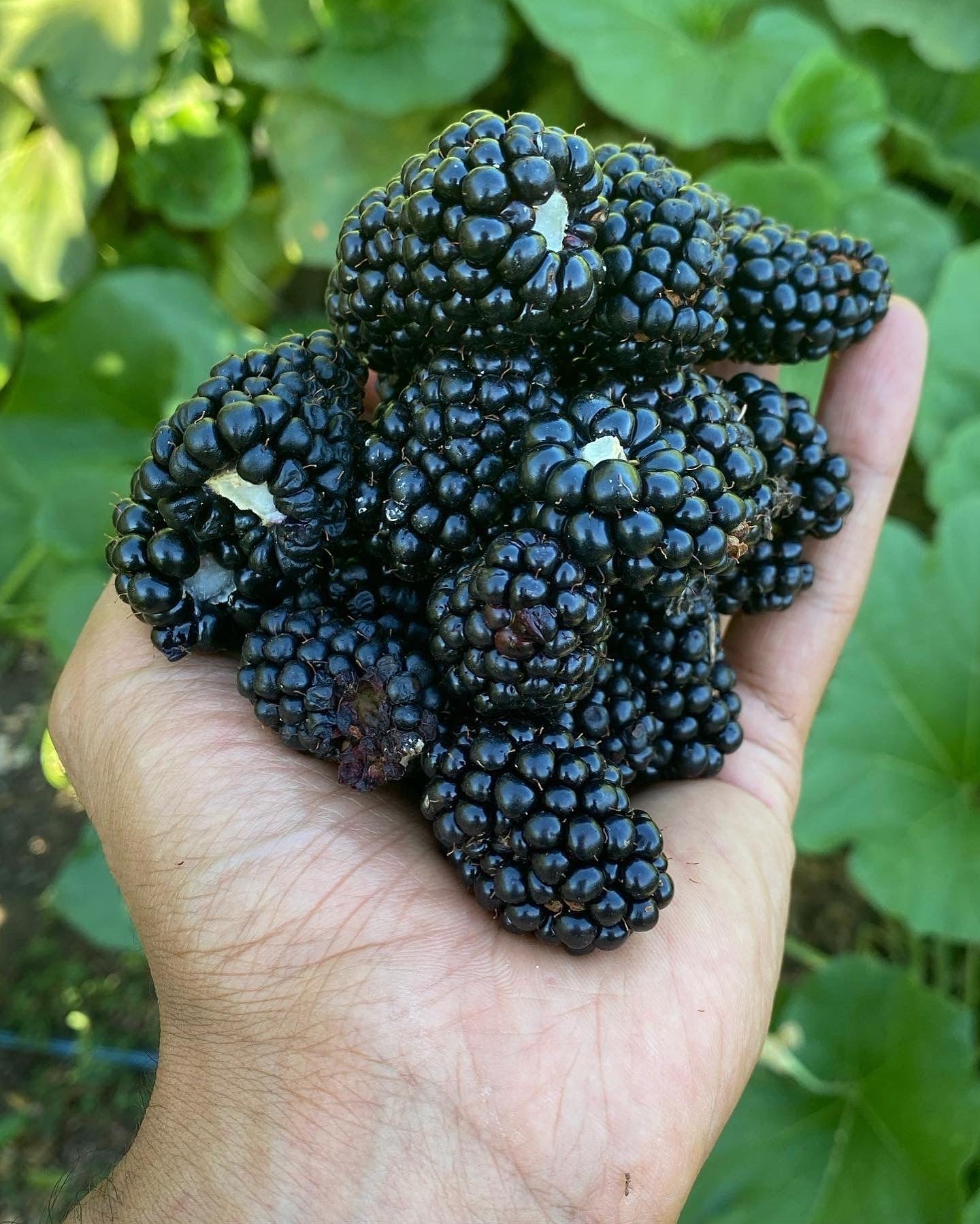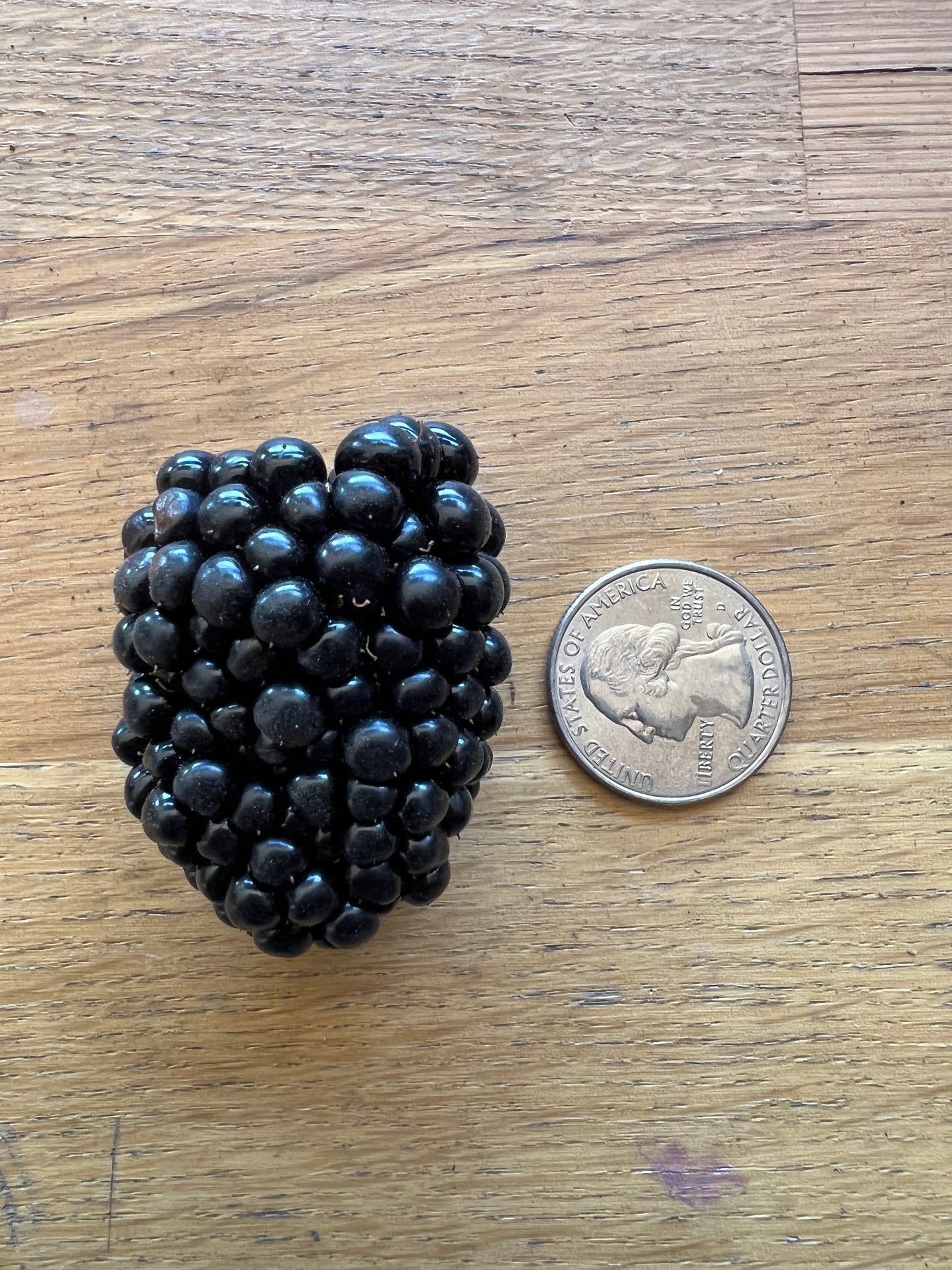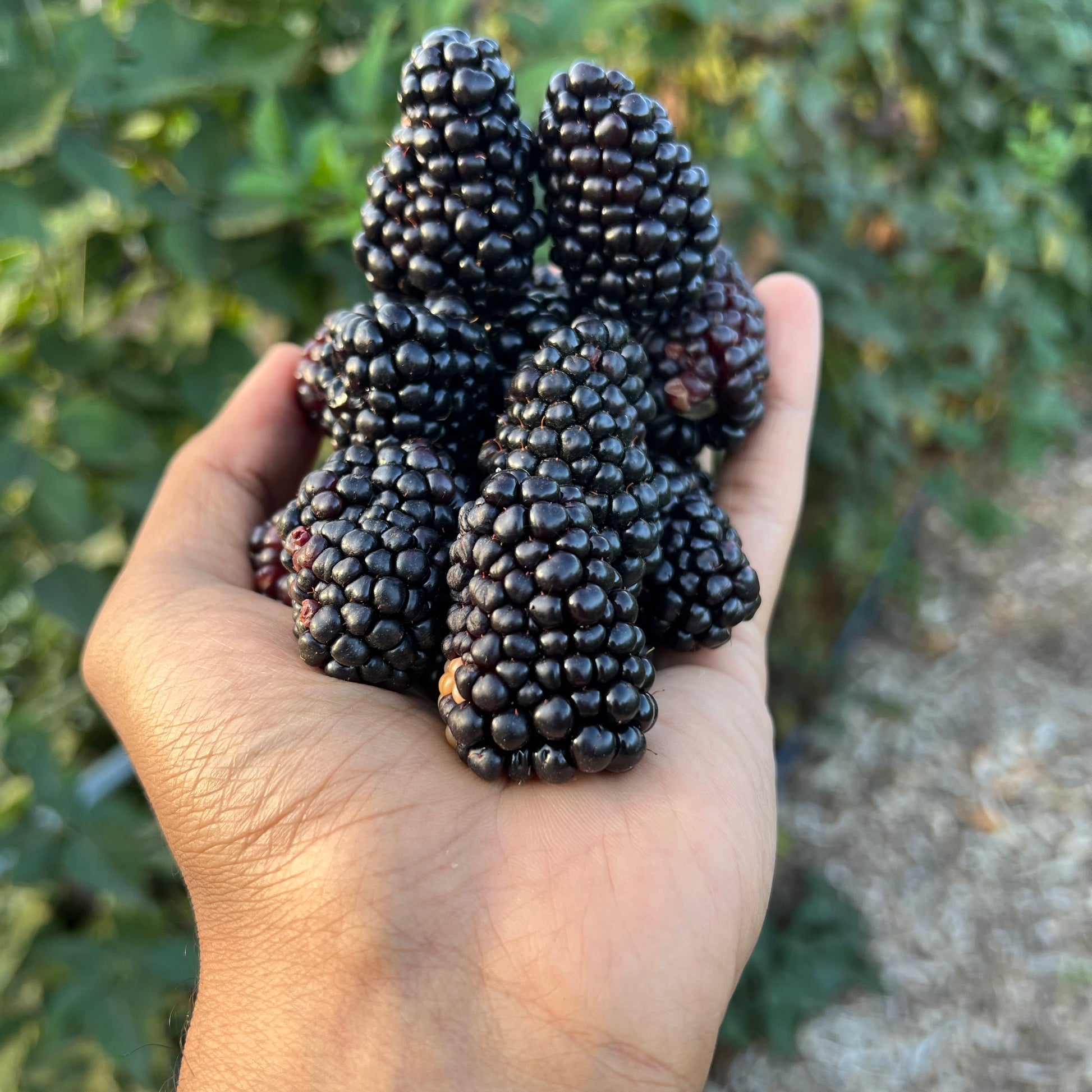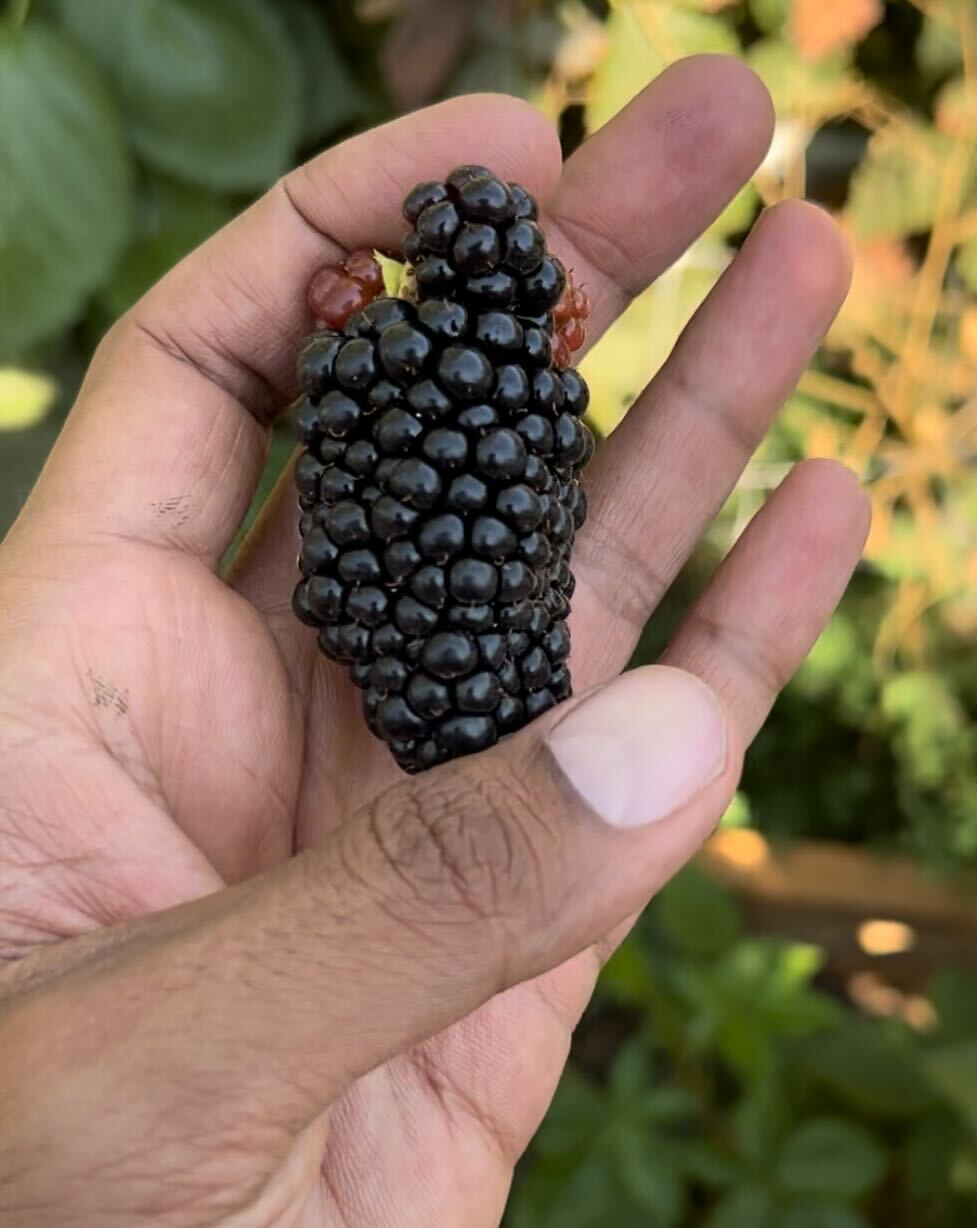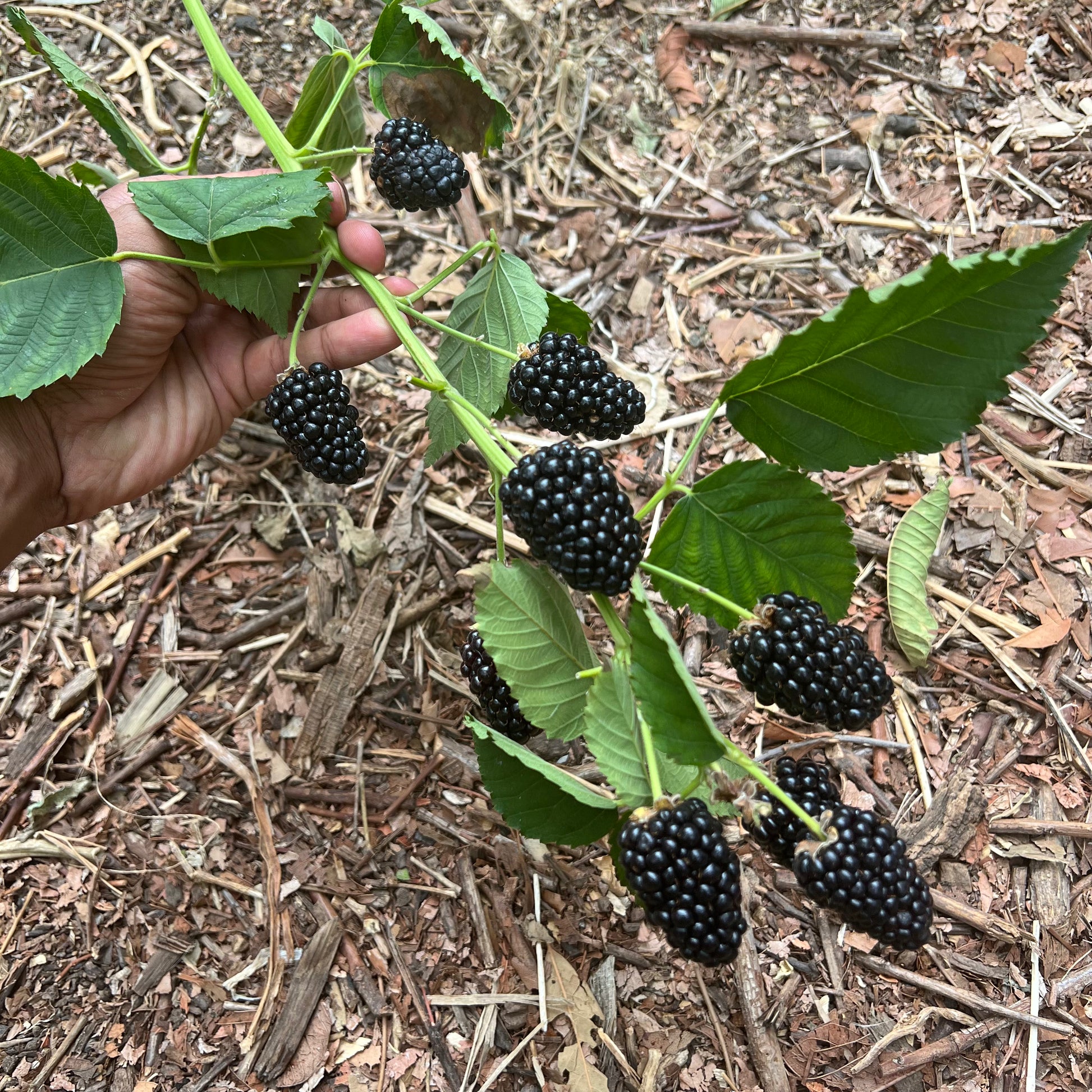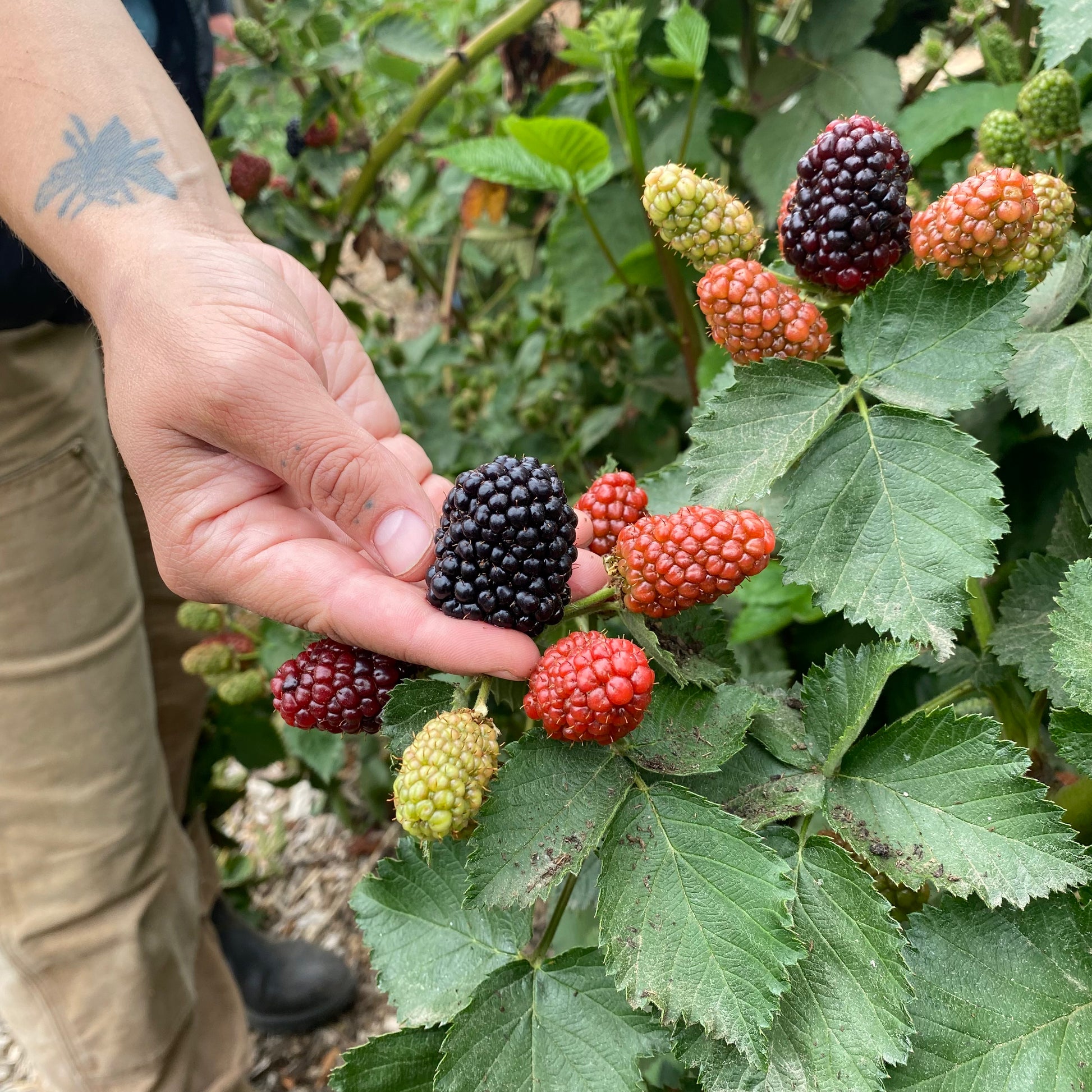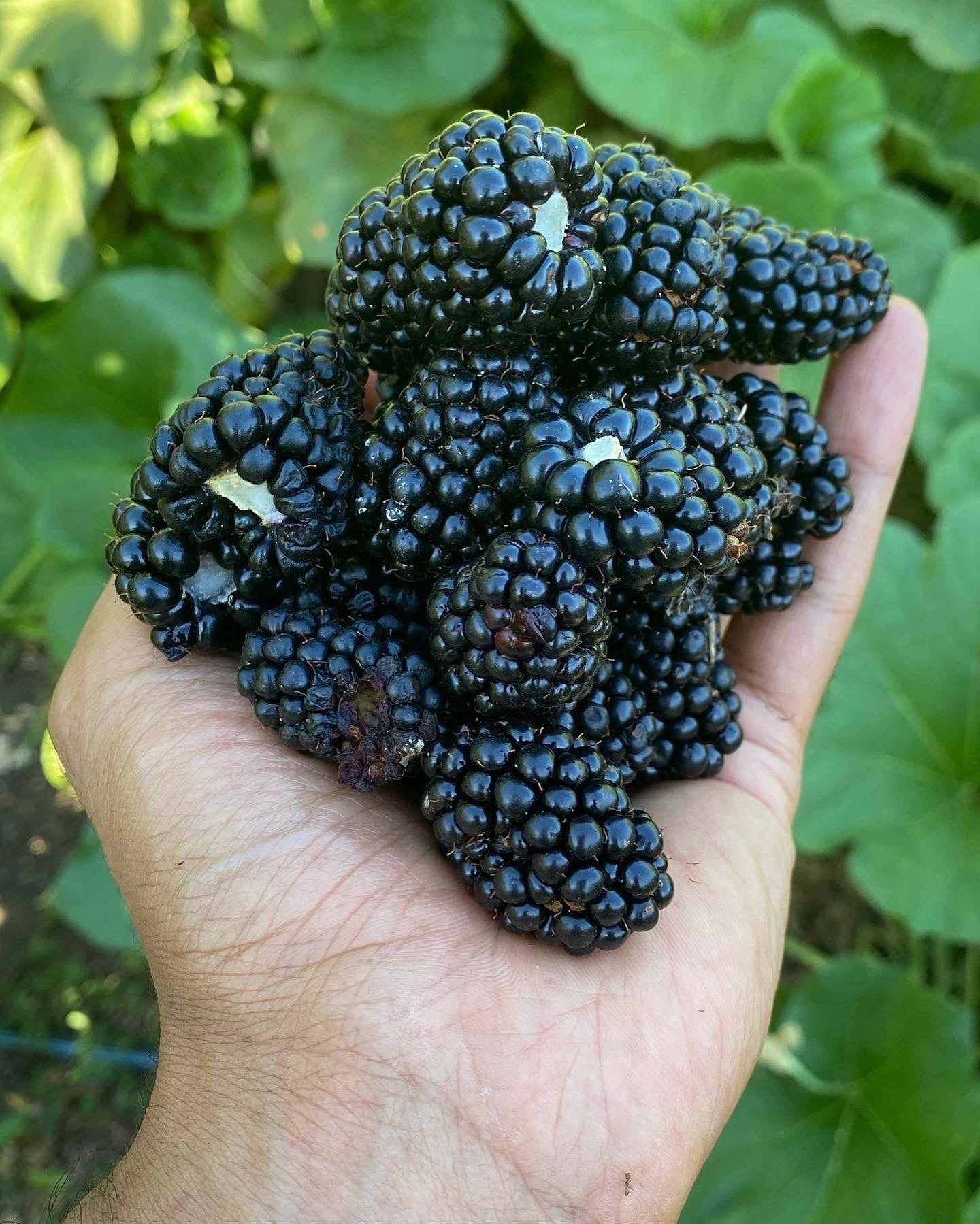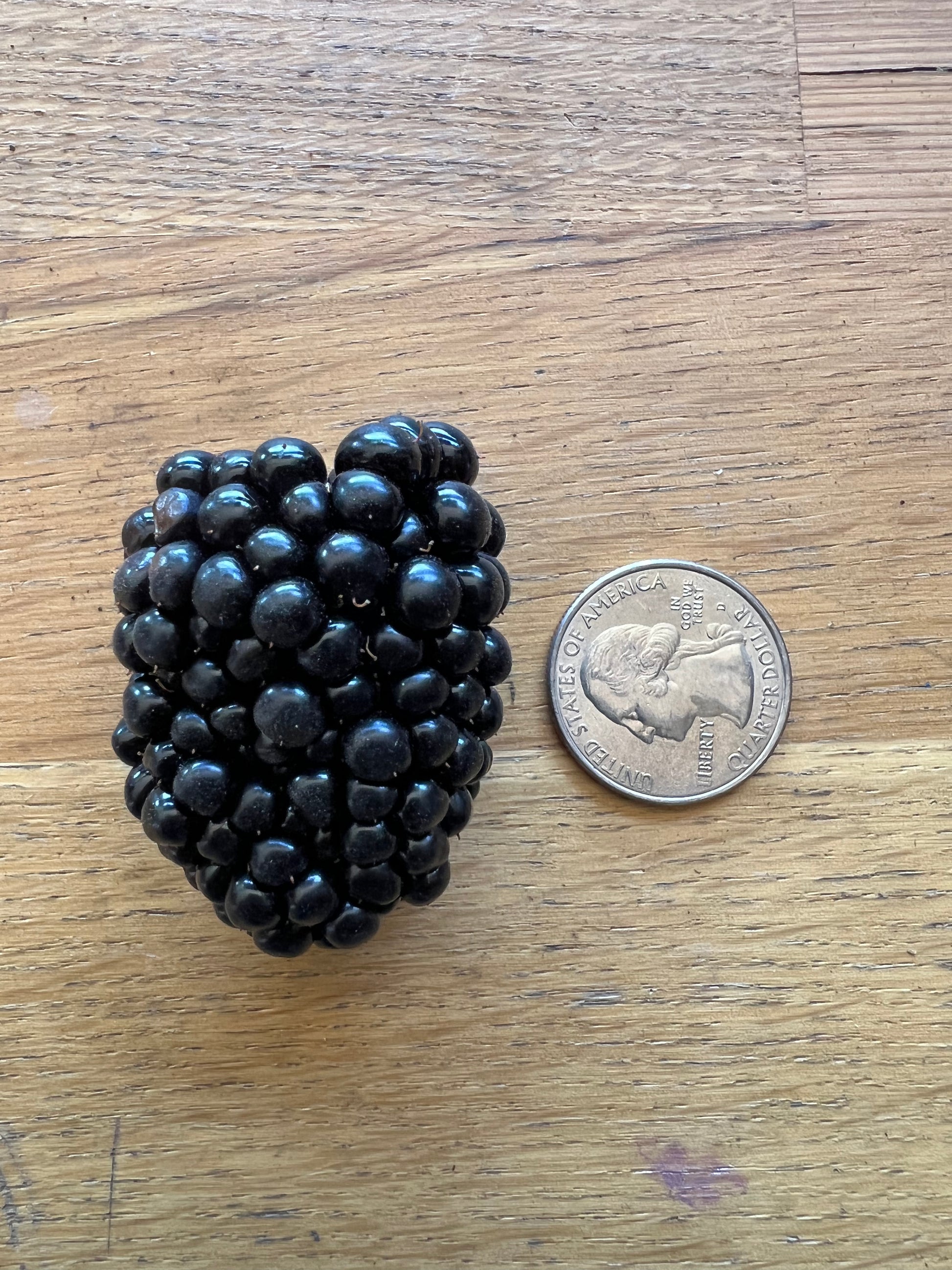Bareroot Blackberry, Prime Ark Freedom - PREORDER for March 17 fulfillment
Bareroot Blackberry, Prime Ark Freedom - PREORDER for March 17 fulfillment
3 inch Pot - 8 to 12" tall plant in 6" diameter x 7" tall pot. SHIPPABLE
1 gallon Pot - 8 to 16" tall plant in 5" x 5" x 6" tall pot. SHIPPABLE
Small Tree Pot - 8 to 16" tall plant in 5" x 5" x 6" tall pot. SHIPPABLE
Large Tree Pot - 8 to 16" tall plant in 5" x 5" x 12" tall pot. SHIPPABLE
3 gallon Pot - 18 to 36" tall plant in 10" diameter x 8" tall pot. IN STORE ONLY
5 gallon Pot - 30" to 60" tall plant in 11" diameter x 10" tall pot. IN STORE ONLY
15 gallon Pot - 60" to 75" tall plant in 17" diameter x 15" tall pot. IN STORE ONLY
Couldn't load pickup availability
Orders placed now are PREORDERS. Plants will start shipping on the date in the product title.
Our most popular plant at Sarvodaya Farms. Prime-Ark Freedom blackberry is unreal! The plant is completely thornless, and has an upright growth habit. The fruit is the really crazy part though: berries can literally be 4 inches long and 2 inches fat. The flavor is rich, juicy, and seeds are relatively small. Just unbelievable.
The variety was created through conventional breeding and has not been genetically engineered.
This blackberry variety is disease resistant and drought tolerant. In Southern California, expect first harvest as soon as temperatures are regularly in the 80s. Fruit will continue coming all summer in successive waves, except when temperatures are regularly above 95 degrees.
The Prime-Ark Freedom blackberry does best in full sun and loamy, well-drained soil. It is self-pollinating and was originally part of the University of Arkansas’s primocane breeding program and is the first primocane-fruiting thornless blackberry ever. This means more fruit faster as it fruits on new growth unlike most other blackberries. This extends the fruit harvest time too as new canes will produce early season berries, while the older canes will produce later season berries.
Special Features:
• Large, sweet fruit
• Thornless
• Self-fertile
• Disease resistant
CARE INSTRUCTIONS
This blackberry plant is very sturdy but will benefit from a wall or trellis to support it. In the winter, the entire plant can be pruned down to a foot from the ground, but it is not necessary as having older canes will allow for fruiting at different times of the season. As with other blackberry plants, suckers will pop up about 1-2 feet away from the parent plant. These can be left to grow, dug out and replanted, or given away as a delicious gift!
ABOUT THIS PLANT
Botanic Name: Rubus fruticosus
Common Names:
Blackberry,
Brambleberry,
Bramble
Lifespan: Perennial
Hardiness Zone: 5-10
Fruiting Season: Early and Late Summer
Growth Structure: Upright canes, up to 8 ft tall
Fertility Preference:
★
★
★
★
★
Water Preference:
★
★
★
★
★
Sun & Light Preference:
★
★
★
★
★
Fruiting Season: Early and Late Summer
Recommended Size for Container Growing: 15 gallon pot
